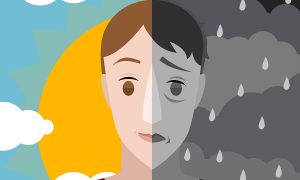
What Causes Stress?
Different things in our daily routines can be responsible for stress, such as a chronic disease, an argument, or a demanding job, and being in quarantine is another major factor. Stress can cause a heavy burden to your health or emotional state, even if it is from positive events like planning a dinner, most likely if you are an older adult. “As we age, our immune systems are less efficient, and adding stress to that can lead to disease progression or the onset of disease,” says Dr. Ann Webster, a psychologist at Harvard-affiliated Massachusetts General Hospital and Benson-Henry Institute for Mind-Body Medicine.
How Do We Know We Are Stressing Out?
There are various symptoms that let you know you are stressing out.
People may experience physical symptoms like back pain, headaches, heart palpitations, or indigestion. These issues can mess with your decision-making abilities and concentration.
There are other symptoms that show emotional stress, which are irritability, crying or edginess. Stress can also take the form of negative behaviors. Overeating, speeding or smoking may all be signs of stress.
4 Methods to Manage Stress
To manage your stress, you first have to learn what causes it for you. “If you know what pushes your buttons, then avoid it. But there are stresses we have to accept, so we must change our reactions to them,” explains Dr. Webster. Here are seven ways to help you manage your stress and develop a healthier and calmer lifestyle:
1. Cognitive Behavioral Therapy
In CBT therapy, your therapist will help you recognize negative thoughts and elements. It revolves around the idea that unhealthy thinking causes a negative change to your emotions. Hence you will work with your therapist to replace the negative thoughts with positive ones.
2. Meditation and Relaxation Techniques
Meditation and relaxation techniques help oneself to reverse the effects of stress. It lowers your blood pressure, oxygen consumption, heart rate, breathing, and release of stress hormones. There are different methods to relax yourself, such as guided imagery, meditation, breathing exercises, and yoga. Practicing different forms of mindfulness helps you release emotions that are acting as stress triggers in your body.
3. Laugh and Smile
Our facial expressions are strongly connected to our emotions. When a person is stressed, it shows on their face, even if they try not to. Too much strain on your facial muscles because of stress can cause early age facial wrinkles. Hence if in that state, you try to smile or laugh, you will send an opposite reaction to the negative feelings and relieve your stress.
4. Get Enough Sleep
Stress causes your body to be tired, which can cause even more stress. Insomnia is one of the main symptoms of stress. It can affect your mental and physical health at once. So, try to sleep enough so that you can wake up rejuvenated. If you struggle with insomnia and have problems sleeping at night, you can find help here. Have your body rest on medicated mattresses to help relieve back pain and help you sleep better.
References:
https://www.mentalhealth.org.uk/publications/how-manage-and-reduce-stress
https://www.apa.org/helpcenter/manage-stress
https://www.health.harvard.edu/mind-and-mood/best-ways-to-manage-stress
He’s a university student with a cluster of thoughts that he loves to write down.


